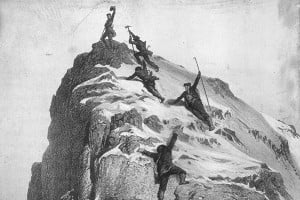
Zofia Reych shares an extract from their newly-released book Born to Climb: From Rock Climbing Pioneers to Olympic Athletes by Vertebrate Publishing.
'Over half a lifetime of climbing is stamped on my body, from crowded toes and undainty knuckles to overdeveloped back and elongating spine. It seems that what we think, what we feel and what we do changes us in ways both physical and less visible.'
Steph Davis (born 1973), climber noted for her solo ascents, base jumper and writer
The wood of the chestnut flooring felt warm under my feet, heated by the late morning sun outside the window. I looked down at my toes and the parquet which extended across the two rooms behind my back. I had spent several weeks laying it and it was beautiful. But it ended ten inches in front of me, and six feet before the wall. I had run out of wood.
After a couple of hours on the phone and even longer on the computer, I was now absolutely sure that my chances of buying chestnut parquet flooring during lockdown were zero.
I focused my eyes on the border between the smooth wood and the rough OSB boards, trying to decide if the emotion I felt was panic, indifference or both.
As of that morning, the Forest of Fontainebleau was off-limits – the one place where we hid from reality, pretending that everything was fine. Now we were truly confined to the house, one resembling a building site much more than a home, with a one-kilometre perimeter for dog walks. Reality had caught up with us.
***
Since taking up climbing again in my mid-twenties, I had been obsessed with progress. I loved being out on the rocks but my raison d'être was to be better, and better, and better. When I wasn't succeeding, I cried and hated myself. I went wherever I could climb the most, I trained, I partially gave up a career – every single one of my decisions was influenced by the overarching ambition to catch up with the elite. Not realising that it wasn't a good reason to climb, I didn't have any goals other than hard grades.
Moving to Fontainebleau seemed like a logical step. Every day when the weather was dry, I was in the forest for at least a couple of hours, trying to climb, falling off and getting frustrated. The rest of the time I trained or worked remotely on random projects I didn't care about.
I found a small community of motivated climbers, but mostly headed out alone. Suddenly, I noticed something that had previously slipped my attention: the vast majority of Fontainebleau boulderers were white men. It wasn't uncommon that I'd find myself the odd one out, with only male climbers at a busy crag, and I felt like I had to act. A few months later I found myself a director of the first Women's Bouldering Festival in Fontainebleau, excited and terrified at the prospect of nearly a hundred climbers visiting from all over the world.
On the first day of the event, when the participants had already headed for the rocks, I was held back by some admin work and ended up the last one to arrive at the sandy clearing of L'Éléphant. Seeing one of the oldest, most iconic Fontainebleau locations busy with an international crowd of women suddenly made my eyes well up. It felt very special to flip the gender dynamics of the crag, to witness and experience the difference. I knew nothing about event organising and I had no idea what I was doing with the festival, but it felt right.
The following year there was a small team of volunteers helping me to run the non-profit organisation which staged the event. Apart from outdoor climbing, we rented a venue and invited professional climbers to give presentations. We had workshops and yoga and wine. I was happy to do something positive in the community, and excited for the next edition of the Festival. We were confident that the third one would be the best yet because we hadn't foreseen the unpredictable: the plague. We downscaled, we put safety measures in place and we waited until the very last moment, not knowing if we'd have an event or not. In the end, we had a small, socially distanced gathering – an unlikely and surreal weekend of celebrating that we were together and that we were alive.
A week after the corona-festival, I did my hardest boulder, but I hadn't achieved my big goal: to climb 8a before my thirtieth birthday. I was nearly thirty-five and had climbed every single grade up to 7c+, but the magical barrier one grade above remained impenetrable. For nearly five years I'd been beating myself up about it, felt insufficient, trained hard, got injured, got anaemic, cried and cursed. And then it all fell away. After mantling the last hold on À l'Envers, a little 7c+ roof traverse, I was content. I didn't have to push any more. Whether it was because of five million deaths worldwide or just because I had got older (but most likely not wiser), I was suddenly able to put climbing into perspective.
They say that a watched kettle never boils and that climbing goals are achieved when you stop caring about them too much. For me, it seems that feelings of inadequacy and not being enough were very strong motivators. Now that I've stopped obsessing about an 8a, I've started questioning if I was motivated at all, and if so, why. With great surprise, I realised that perhaps I will never push myself to complete another hard project and that I'm okay with that.
***
Odd as it may sound, at the start of the pandemic I got lucky. Unlike millions of people who lost their jobs because of the coronavirus, I had just voluntarily quit nearly all of my assignments to focus on renovating a dilapidated farmhouse in the south of the forest. We moved in, and while Andy took photos and worked on his computer, I demolished and built walls, laid tiles and plumbed toilets. And then all the building stores closed and we were locked up on a building site, with hardly any heating and half a parquet floor.
In a desperate and illogical attempt to slow down the catastrophic spread of the virus in the Île-de-France region, the authorities closed down the Forest of Fontainebleau. Red and white police tape appeared at all car parks, and officers enforced the lockdown with drones circling above the trees. Many local climbers decided to play a game of hide and seek. For me, the idea of law enforcement lurking behind a rock ready to accuse me of spreading the plague seemed only to increase my stress, so I surrendered to the lockdown without a fight.
And after my building supplies ran out, I started writing this book.
I still climb and I will probably do so for as long as I can – but it is no longer the one driving force behind everything I do. Without an overambitious goal in front of me, I would be lying if I said I didn't feel a little lost. But I'm excited to find out what makes me tick, and where I'll go without a clear roadmap.
Perhaps all this is only me fluctuating between the heroic and aesthetic approaches to climbing: having been driven by the achievement, maybe now I'll be in it for the joy of the experience.
***
Although Japan was not hit by the pandemic as badly as other countries, in May 2021 Tokyo had extended its state of emergency. Despite the considerable risks of staging a huge international event, calls for the cancellation of the Olympic Games fell on deaf ears. The restrictions were to be lifted at the end of the month, leaving enough of a gap ahead of the postponed event, planned to kick off on 23 July.
Ostensibly, the postponed Games were to be a sign of perseverance in the face of a cataclysm. In practice, a last-minute cancellation would result in multi-billion-dollar losses. As long as the worst-case scenario of a superspreader event could be avoided, the organisers were not going to back out.
Despite unprecedented security measures, issues surfaced before the opening ceremony even took place. From officials fist-bumping members of the public to a shared dining hall serving 45,000 meals daily, it seemed that staging the Olympics could prove to be a game of Russian roulette.[1]
Climbing was scheduled for the first week of August at the Aomi Urban Sports Park overlooking Tokyo Bay. When the athletes walked into the arena, the heat and humidity of the Japanese summer were not on their side. In addition, the stands were nearly empty, with only officials, teams and the press allowed to attend. Along with the convoluted scoring system, these were not the Games that athletes had dreamed of.
The first ever Olympic medals for climbing were to be determined by the multiplication of points earned in speed, bouldering and lead. They were awarded according to standings, and the lowest combined score would win.
The men's competition ended with a surprise. The last athlete to climb on the lead wall was Austrian Jakob Schubert. As he set off on his attempt, Adam Ondra was second in the overall standings. In a nail-biting finish, Schubert climbed past Ondra's high point to the end of the route, winning the lead competition and earning himself bronze overall. This meant that Ondra's score was multiplied by two (corresponding to his second place in lead) and amounted to forty- eight points, knocking him from gold all the way down into sixth. At the top of the table was a score of twenty-eight, a result of first place in speed, and seventh and fourth places in bouldering and lead respectively, earned by Spanish newcomer Alberto Ginés López. The nineteen-year-old became combined sport climbing's first Olympic gold medallist. On the second step of the podium stood American Nathaniel Coleman.
The women's event was no less exciting and even the complex grading system couldn't obscure a dominant performance by Janja Garnbret. Hailed the greatest competitor of all time even before the Olympics, Garnbret's combined score amounted to five: she was fifth in speed and first in both bouldering and lead. In second place was Tokyo native Miho Nonaka, followed by compatriot and the oldest finalist, thirty-two-year-old Akiyo Noguchi.[2]
***
As the Olympic torch was put out, Japan was grappling with a surge in coronavirus cases. Officials continued to deny links between the event and growing infection rates, but numerous independent specialists were sceptical. Luckily, the Games did not become the feared superspreader event – but whether that was enough of a reason to justify the risk remains up for debate.
The introduction of new disciplines, as well as the organisers' ambition to lift the audience's spirits during the pandemic, were not enough to prevent viewing numbers falling to their lowest since 1988. The huge time difference between Tokyo and the western world contributed to the poor statistics, with an increase only noted in Japan and Australia. Both NBC and BBC television broadcasts fell short of expectations, but in comparison to previous events, the demand for online streaming grew. How the IOC will adapt to the digital-first reality, and whether 'Agenda 2020' will allow the Games to win over younger audiences, is yet to be seen.
Meanwhile, climbers took to social media to share their experiences. Some, like Shauna Coxsey, were ecstatic, while others had mixed feelings. Alex Megos said that he 'felt a little uncomfortable seeing the lengths everyone was going to and the money federations were spending for only a handful of people to climb an afternoon or two', and 'was beginning to wonder if the athletes really were at the centre of the biggest sports event on Earth'.[3] American Colin Duffy was disappointed with the scoring system, which left him low down the scoreboard ('It is crazy when I think of the three podium finishers, I beat them in two of the three disciplines') and Miho Nonaka said that 'the combined format was really painful'.[4 & 5]
Despite this criticism, climbing has proven itself a valuable asset to the IOC. Accepting the discipline as part of the Paris 2024 Games, the IOC announced that while bouldering and lead would remain combined, speed climbing would become a separate event. In addition, the number of athletes will be expanded from forty to seventy-two.
With climbing being relatively well established in France, it will likely attract a lot of mainstream attention. Beyond the benefit to the athletes, it will be interesting to see the effects of the separation of the three disciplines.
***
I watched parts of the broadcast on an old television set at my grand- mother's summer cottage. With Poland's speed specialist in the final, Channel One opted to follow the competition. As I thought back to my first forays into rock climbing two decades earlier and my first training venue – a bouldering wall fitted in a sports centre cleaning cupboard – it felt surreal to watch the Olympic climbing live on national TV. Grandma, reclined on a cosy sofa bed, looked over her newspaper at the athletes leaping from one hold to another.
'Look, look now!' My exclamation came a moment too late and Akiyo Noguchi fell off a big green hold. With only ninety seconds left, she opted to take a good rest before the next attempt.
'What are they doing, standing on the mats for so long?' enquired Grandma, and I attempted to summarise the tactics and complexity of a bouldering competition. She adjusted her glasses and looked back down towards her paper. To my dismay, she was clearly disinterested.
'It's not as exciting as when they run up the big wall,' she said in a matter-of-fact way. If bouldering failed to arrest her attention, what chance did lead climbing have? On the other hand, for a lay observer the speed part of the competition was clearly the easiest to follow and the most spectacular. It could be an ironic twist of events if, in the long run, bouldering and lead were to be dropped, while speed – so often ridiculed by the outdoor climbing community – remained an Olympic sport.
Grandma sank back into her reading and I anxiously watched the competition on two screens at the same time. When the national broadcast cut away to the velodrome, I turned to my computer and the weak internet connection for the live stream. To watch it, I had paid for a monthly Eurosport subscription – a baffling move from somebody who ten years earlier had authored a series of anti-Olympic essays. Yet there I was, on the edge of my seat, completely engrossed in the competition.
Notes and References:
Epigraph
'Over half a lifetime of climbing is stamped on my body, from crowded toes and undainty knuckles to overdeveloped back and elongating spine. It seems that what we think, what we feel and what we do changes us in ways both physical and less visible.'
Steph Davis quoted on her sponsor's website, 2012, quoted in Reych, Z., 'Climbing Women and Niche Media: Beyond Alternative Femininities', SOAS, UK, 2013.
Notes
1 Iki, M., 'Staff, Athletes in Constant Fear of Infections at Olympic Village', The Asahi Shimbun, 2021, www.asahi.com/ajw/articles/14401618, accessed 8 September 2021.
2 Bassa Mawem, who qualified in eighth place for the men's final, would have been the oldest finalist but he couldn't compete due to a bicep injury.
3 Megos, A., on his Instagram page, www.instagram.com/p/CVZ9x-9MPep/, www.instagram.com/p/CTSrOIKlZK9/, accessed 2 January 2022.
4 Dart, T., 'Climbing is a hit at the Tokyo Olympics – but does it reward the best athletes?', The Guardian, www.theguardian.com/sport/2021/aug/05/climbing-scoring-tokyo- 2020-olympics-adam-ondra, accessed 2 January 2022.
5 Nussey, S., 'Olympics-Climbing-Sport Overcomes Format Limitations to Reach New Heights', Reuters, https://www.reuters.com/lifestyle/sports/review-olympics-climbing- sport-overcomes-format-limitations-reach-new-heights-2021-08-08/, accessed 2 February 2022

Watch a video interview with Zofia below:
- OPINION: Cutting-Edge Climbing or Insta-fame? 8 Jun, 2018

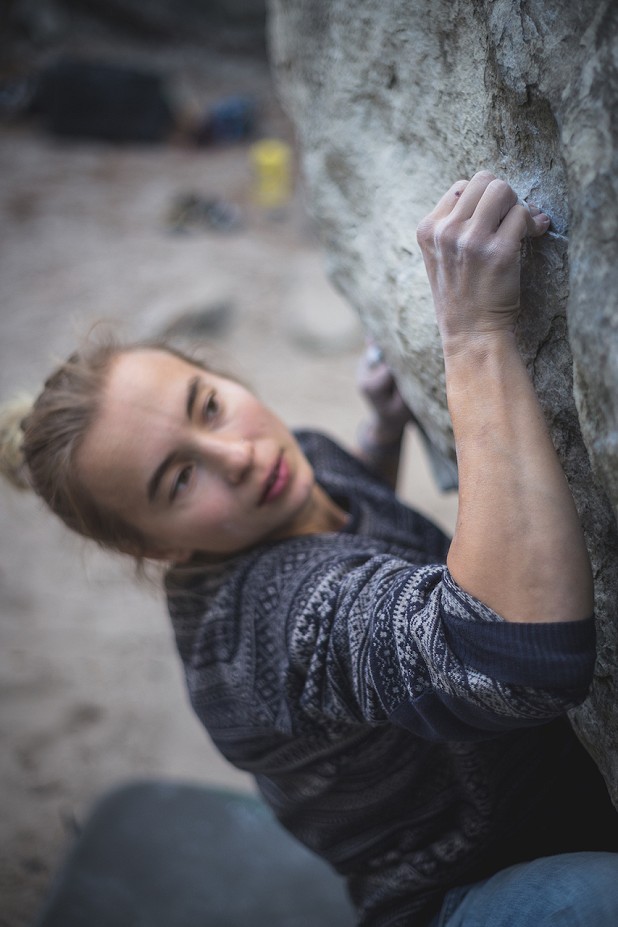
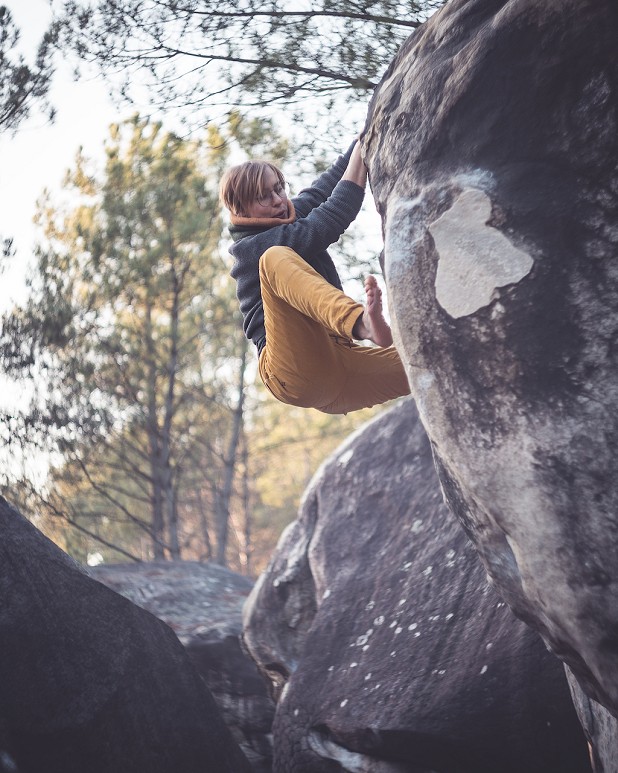
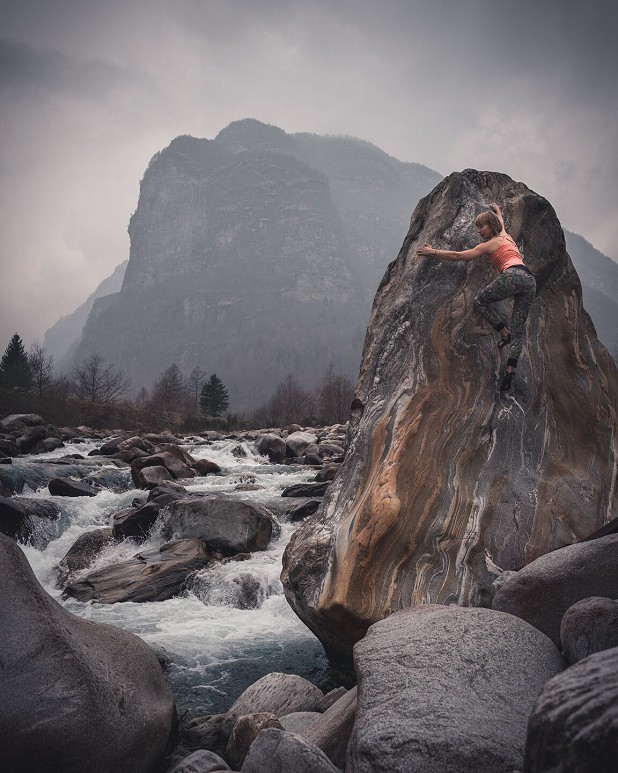
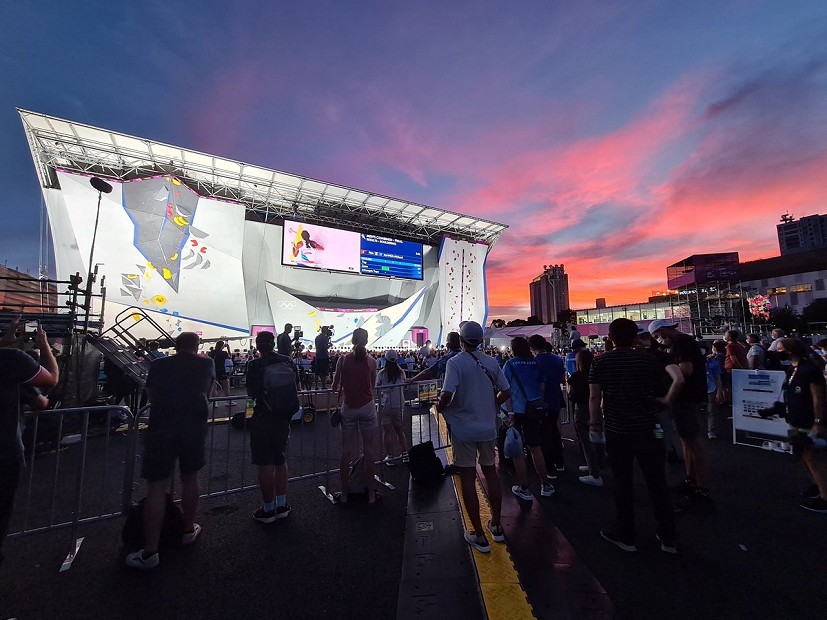

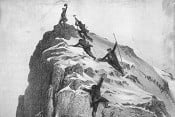
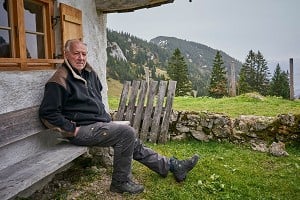
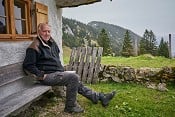
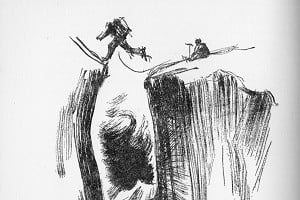
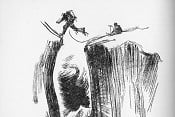








Comments
Is this a single extract or bits from different chapters or something?
I've just finished reading this book. I find more and more with climbing books I loose focus quite quickly, but not with this one, I really couldn't put it down. It is an absolute delight. For me it's more about the writing style then the subject matter, and Zofia makes the words flow so well. Top effort :-)